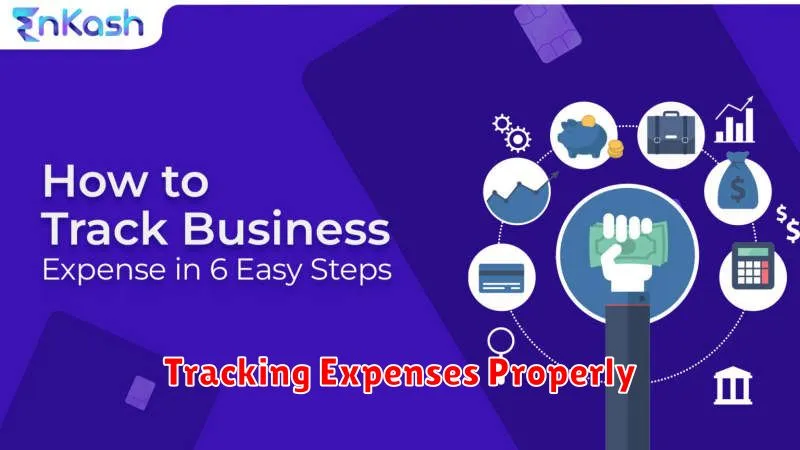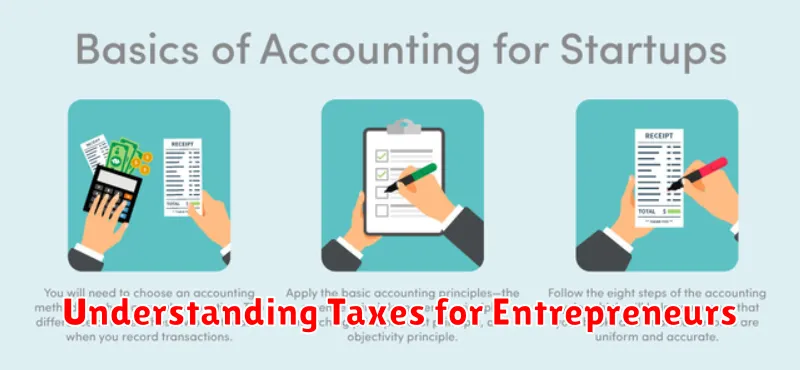Starting a new business is exciting, but it also requires careful financial planning. Many new entrepreneurs struggle with managing their finances, which can unfortunately lead to business failure. This article provides essential financial tips to help new entrepreneurs navigate the complex world of business finance. Understanding these key financial principles will help you build a strong foundation for your business and increase your chances of long-term success. Topics covered include developing a business budget, managing cash flow, securing funding, and understanding basic accounting principles.
This guide is designed to offer practical and actionable advice for new entrepreneurs looking to establish sound financial practices. From understanding the importance of financial projections to effectively managing business expenses and securing necessary capital, these essential financial tips will empower you to make informed decisions. By implementing these strategies, you can build a financially sustainable business and avoid common financial pitfalls that can hinder growth. Whether you’re launching a tech startup, opening a retail store, or starting a freelance career, these financial tips for new entrepreneurs are crucial for your success.
Why Financial Planning Is Crucial
As a new entrepreneur, you’re likely consumed with the excitement of building your business. However, amidst the thrill of innovation and growth, it’s crucial not to overlook the essential aspect of financial planning. A well-structured financial plan acts as a roadmap, guiding your business towards sustainable success and helping you navigate potential financial challenges.
Effective financial planning provides a clear understanding of your current financial situation. By analyzing your income, expenses, assets, and liabilities, you gain valuable insights into your business’s financial health. This knowledge empowers you to make informed decisions regarding investments, pricing strategies, and resource allocation.
Moreover, a solid financial plan helps you anticipate and mitigate potential risks. Unforeseen circumstances, market fluctuations, and economic downturns can significantly impact your business. By forecasting potential challenges and developing contingency plans, you can safeguard your business from financial instability and ensure its long-term viability.
Creating a Startup Budget
A well-defined budget is essential for any startup. It serves as a roadmap for your finances, helping you allocate resources effectively and make informed decisions. Creating a realistic budget requires careful consideration of your startup’s specific needs and projected expenses.
Begin by identifying all startup costs. These may include expenses such as equipment purchases, marketing campaigns, website development, and legal fees. Be sure to also account for ongoing operational expenses like rent, utilities, salaries, and inventory.
Next, estimate your projected revenue. While this can be challenging for new businesses, it’s crucial for determining your financial runway and identifying potential funding needs. Be conservative in your revenue projections to avoid overspending and ensure sustainability.
Organize your budget using a spreadsheet or budgeting software. This will allow you to track your expenses and income effectively, and identify areas where you can potentially reduce costs or improve efficiency. Regularly review and update your budget as your business grows and evolves.
Separating Business and Personal Finances

One of the most critical steps for new entrepreneurs is separating business and personal finances. This practice offers several key advantages, contributing to both organized financial management and legal protection.
Mingling funds can create significant accounting challenges, making it difficult to track business income and expenses accurately. This lack of clarity can complicate tax preparation and obscure the true financial health of your business. Furthermore, it can expose personal assets to business liabilities, putting your personal financial well-being at risk.
To establish a clear separation, open a dedicated business bank account and obtain a business credit card. Process all business transactions through these accounts. This provides a clear audit trail and simplifies financial reporting. It also helps establish business credit, crucial for future financing.
Tracking Expenses Properly

Accurate expense tracking is crucial for new entrepreneurs. It provides a clear picture of your business’s financial health, helps identify areas for potential savings, and simplifies tax preparation. Failing to track expenses diligently can lead to overspending, missed tax deductions, and an inaccurate understanding of your profitability.
Use a dedicated system, whether it’s accounting software, a spreadsheet, or a mobile app. Consistently record every expense, no matter how small. Categorize expenses for easier analysis (e.g., rent, marketing, supplies). Keep digital or physical copies of receipts as proof of purchase.
Regularly review your expense reports. Look for trends, identify areas where you can cut costs, and compare your spending against your budget. This consistent monitoring helps you stay financially informed and make sound business decisions.
Understanding Taxes for Entrepreneurs

Navigating the tax landscape is crucial for any new business owner. Proper tax management ensures compliance with regulations and can significantly impact your bottom line.
One of the first steps is understanding your business structure (sole proprietorship, LLC, partnership, etc.) as this determines your tax obligations. Estimated taxes are a key component for entrepreneurs, requiring quarterly payments based on projected income. Failing to pay these can result in penalties.
Keep meticulous records of all income and expenses. Deductible expenses can reduce your tax liability, so track everything from office supplies to mileage. Consult with a tax professional for personalized advice and to ensure you are maximizing deductions and minimizing your tax burden.
Planning for Emergencies and Growth
Starting a business is exciting, but unforeseen challenges can arise. Emergency funds are crucial. Aim for 3-6 months of operating expenses to cover unexpected downturns or slow periods. This financial safety net can prevent you from making rash decisions or taking on unnecessary debt during difficult times.
Simultaneously, planning for growth is essential. Forecasting your revenue and expenses helps you understand your business’s trajectory. Establish clear financial goals, whether it’s expanding your team, increasing marketing efforts, or investing in new equipment. These goals should be realistic and measurable, allowing you to track progress and adjust your strategy as needed. Regularly review your financial projections and adapt your plans to capitalize on opportunities and mitigate potential risks.

